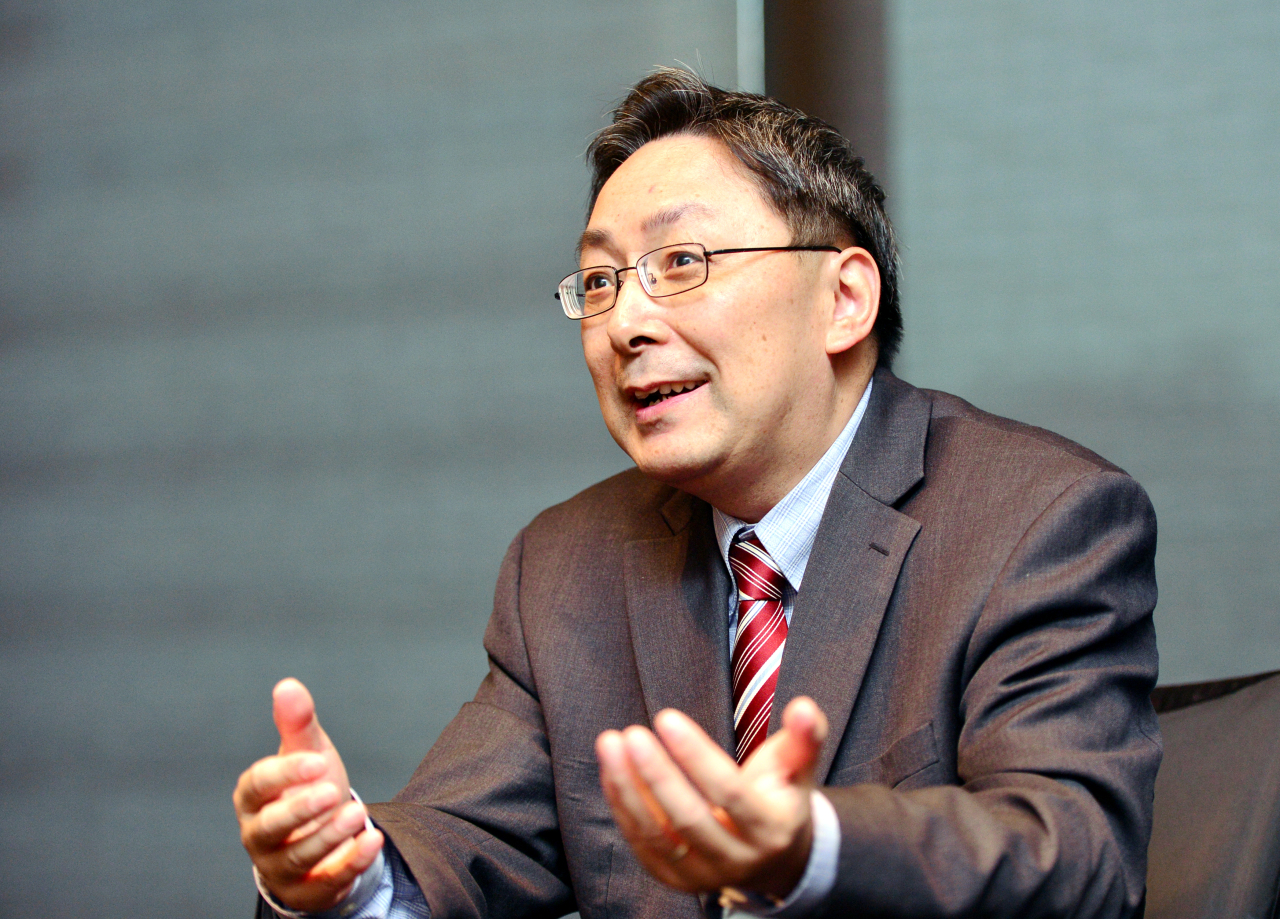Pandemic accelerated power shift in China’s favor: expert
There’s no free lunch in China’s “vaccine diplomacy”
By Ahn Sung-miPublished : Nov. 24, 2021 - 15:15

In the early days of the COVID-19 pandemic, the virus brought life in China to a halt. As the epicenter of the first coronavirus outbreak, China imposed unprecedented lockdown measures that caused its economy to contract by a historic amount. But in a stark turnabout, the country has seen an economic rebound and the lives of people have largely returned to normal -- despite the recent resurgence of the delta variant of the coronavirus.
With China expected to become the only major economy to post strong growth this year, the global power shift appears to be on Beijing’s side in its intense rivalry with Washington, according to a public health policy expert.
“This pandemic has accelerated the power shift actually in China’s favor,” Yanzhong Huang, a senior fellow for global health at the New York-based Council on Foreign Relations, told The Korea Herald in a recent interview. Huang was in Seoul last week to speak at the World Emerging Security Forum, organized by the Foreign Ministry to discuss global cooperation against new security threats, including public health crises.
Citing its gross domestic product growth last year, Huang noted that China was the only major economy to have logged positive economic growth, while the US suffered its worst contraction in seven decades. In 2020, China’s GDP grew 2.3 percent to $14.72 trillion, whereas the US saw a 3.5 percent drop to $20.94 trillion. Analysts have said China could overtake the US as the world’s largest economy around 2032, a few years earlier than previously forecast, due to the pandemic.
“A GDP gap between the US and China will continue to shrink and this power shift will continue to be in China’s favor,” he said.
But the pandemic has not only affected China in terms of economic numbers. It has also offered Beijing the opportunity to shore up its international influence and wield more soft power globally by providing much-needed vaccines and public health goods to many struggling countries, the scholar said.
“The US, especially under the Trump administration, has seen this soft power shrinking significantly, not just because of its poor performance in the pandemic response, but also because of the domestic problems,” said Huang. “In the meantime, we have seen China try to promote its role as a global leader in providing public goods and to also present its pandemic response model as a successful one.”
The Chinese Foreign Ministry said in September that it had provided 1.1 billion vaccine doses to more than 100 countries during the pandemic.
Huang says Beijing’s “vaccine diplomacy” has a clear purpose and political strings attached, notwithstanding claims to the contrary by the Chinese authorities. China’s vaccine deliveries mostly took the form of commercial sales, though Beijing has sought to give the impression that they were donations.
“There’s also a geopolitical interest through providing the vaccines to countries, and in particular to low- and middle-income countries. They want to expand Chinese geopolitical influence and also help facilitate the implementation of the Belt and Road Initiative, China’s signature foreign policy project in the 21st century,” said Huang.
“There’s no free lunch, a quid pro quo deal indeed,” he said. “This may not be so explicit, but there are cases suggesting that China provides desperately needed vaccines in exchange for geopolitical gains. This is happening in some countries in Latin America, for example, and it also happens in Southeast Asia, although to a lesser extent.”
Sensing China’s ambition, the US pursued its own vaccine diplomacy, but was slower out of the gate than Beijing. “The US’ pattern is different from the Chinese,” said Huang. “The US has focused more on donations and emphasized multilateralism by donating almost like three-quarters of the vaccines to COVAX, and small percentage through bilateral channels.”
The UN-backed COVAX is a multinational program that distributes vaccines to developing countries.
“The problem is that Chinese vaccine diplomacy is more efficient as they deliver the vaccines much faster than the multilateral approach, which also undermines the US ability to counter China’s influence through its own vaccine diplomacy,” he said.
The coronavirus has intensified US-China strategic competition, and rather than seeing the great powers cooperate to tackle the common threat, the world witnessed the exact opposite, said Huang.
“Instead of seeing the two countries work together to address a common global challenge, you saw finger-pointing and quarreling with each other on the origins of the pandemic,” he said. “The US-China spat over the origins of the pandemic actually paralyzed the UN response.”
Huang noted that the issue of identifying the source of the virus has been so “politicized and sensitive” that so far the countries have reached an impasse in the origins probe. It has been about two years since the first cases were detected in Wuhan, China, in December 2019, but no definite conclusion on the virus’s origin has been reached yet.
“I think it would be also safe to say we many never find origins of the pandemic,” said Huang, pointing out that the “window is quickly closing” due to time constraints on the biological feasibility of the study, as evidence that may provide clues to the origins of the virus is quickly disappearing.


![[Exclusive] Korean military set to ban iPhones over 'security' concerns](http://res.heraldm.com/phpwas/restmb_idxmake.php?idx=644&simg=/content/image/2024/04/23/20240423050599_0.jpg&u=20240423183955)

![[Graphic News] 77% of young Koreans still financially dependent](http://res.heraldm.com/phpwas/restmb_idxmake.php?idx=644&simg=/content/image/2024/04/22/20240422050762_0.gif&u=)



![[Pressure points] Leggings in public: Fashion statement or social faux pas?](http://res.heraldm.com/phpwas/restmb_idxmake.php?idx=644&simg=/content/image/2024/04/23/20240423050669_0.jpg&u=)










